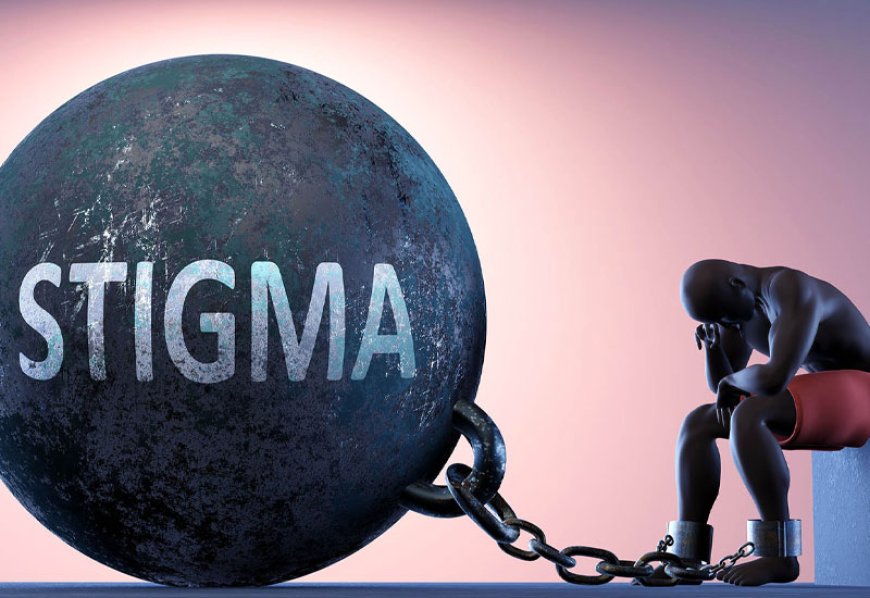'The Truth About Mental Illness: Dispelling Common Myths'
Don't believe everything you hear about mental illness. Learn the truth behind common misconceptions and discover the reality of living with a mental health condition.
In the intricate tapestry of human existence, Mental illness weaves its threads silently, often overlooked or misunderstood. Yet, its impact reverberates through lives, families, and societies, shaping experiences and altering trajectories. In this exploration, we embark on a journey through the labyrinth of mental health, shedding light on its nuances, dispelling myths, and championing empathy and understanding.
The Landscape of Mental Health:
Mental illness knows no boundaries, transcending age, gender, ethnicity, and socioeconomic status. From anxiety and depression to schizophrenia and bipolar disorder, its manifestations are diverse, each carrying its own weight and complexity. According to the World Health Organization, depression alone affects over 264 million people globally, while anxiety disorders are the most prevalent mental health issue worldwide.
The Stigma:
Despite its prevalence, stigma continues to shroud mental illness, erecting barriers to acceptance, treatment, and support. Misconceptions perpetuate stereotypes, painting those grappling with mental health challenges as weak, unstable, or dangerous. Such stigma fosters silence and shame, compounding the burden for individuals already wrestling with their inner demons.
The Ripple Effect:
The impact of mental illness extends far beyond the individual, cascading through relationships, workplaces, and communities. Families navigate turbulent waters, grappling with the strain of caregiving, the agony of witnessing their loved ones' suffering, and the pervasive fear of societal judgment. In workplaces, productivity may suffer, as employees struggle to cope amidst the tumult of their minds. Society at large bears the economic burden, with mental health issues costing the global economy an estimated $1 trillion per year in lost productivity.
Unveiling the Layers:
Peeling back the layers of mental illness reveals a complex interplay of genetic predispositions, environmental factors, and societal pressures. Genetics may load the dice, but it is the environment that rolls them, shaping the trajectory of one's mental health journey. Trauma, abuse, poverty, discrimination, and social isolation are among the myriad factors that can tip the scales toward adversity, fostering the fertile ground for mental health struggles to take root.
The Intersectionality of Mental Health:
Furthermore, the intersectionality of mental health demands a nuanced approach, acknowledging the unique experiences and challenges faced by marginalized communities. People of color, immigrants, and those with disabilities often contend with compounding layers of discrimination and oppression, exacerbating their vulnerability to mental health issues. Culturally competent care, tailored to the specific needs and realities of diverse populations, is essential in fostering inclusive and effective support systems.
Preventive Measures:
Prevention stands as a cornerstone in the edifice of mental health care, yet it often languishes in the shadows of crisis intervention. Early intervention programs, mental health education in schools, workplace wellness initiatives, and community-based support networks are vital in fostering resilience, equipping individuals with coping strategies, and mitigating the onset of more severe mental health conditions.
The Global Perspective:
Mental illness transcends borders, presenting a universal challenge that demands a global response. International cooperation, knowledge sharing, and cross-cultural dialogue are essential in fostering innovation, promoting best practices, and addressing disparities in mental health care access and quality. Initiatives such as the World Health Organization's Mental Health Action Plan and the United Nations Sustainable Development Goals underscore the imperative of prioritizing mental health on the global agenda.
Treatment of mental illness
The treatment of mental illness encompasses a diverse array of approaches, tailored to the unique needs and experiences of individuals. From therapy and medication to lifestyle modifications and alternative interventions, the landscape of mental health care is multifaceted, offering a spectrum of options to support recovery and well-being. Here are some key modalities commonly employed in the treatment of mental illness:
1. Psychotherapy/Counseling: Psychotherapy, also known as talk therapy or counseling, involves working with a trained therapist to explore thoughts, feelings, and behaviors, and develop coping strategies to address mental health challenges. Various modalities, such as cognitive-behavioral therapy (CBT), dialectical behavior therapy (DBT), psychodynamic therapy, and interpersonal therapy, among others, are utilized to address specific concerns and promote healing.
5. Alternative and Complementary Therapies: A variety of alternative and complementary therapies, such as acupuncture, yoga, massage therapy, art therapy, music therapy, and equine-assisted therapy, are increasingly recognized for their potential to enhance mental health and complement traditional treatment approaches. While research on their efficacy is ongoing, many individuals find these modalities beneficial in reducing stress, improving mood, and enhancing overall well-being.
Conclusion:
In the intricate tapestry of human existence, mental illness weaves its threads silently, yet its impact reverberates through lives, families, and societies. By peeling back the layers, challenging stigma, embracing intersectionality, harnessing technology, prioritizing prevention, advocating for policy change, and fostering global cooperation, we can forge a path toward a more compassionate, equitable, and resilient world—one where the shadows of mental illness yield to the light of understanding, acceptance, and healing.
What's Your Reaction?











































